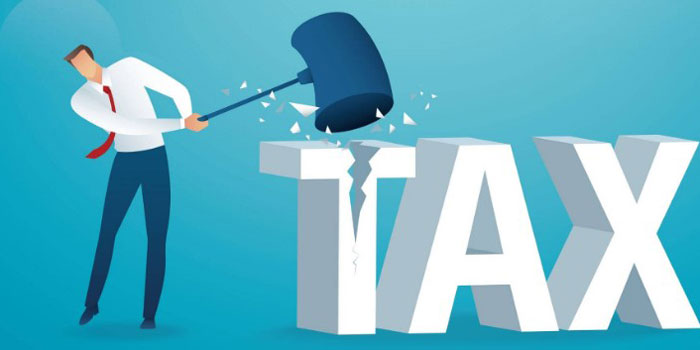The Best Options Besides Traditional Savings Accounts
Dec 29, 2023 By Triston Martin
Saving money is a critical aspect of building and maintaining financial stability. A traditional savings account is a secure and convenient option for keeping your money, but it may only sometimes offer the best return on investment. With the current low-interest rate environment, many savers are looking for alternative options to maximize their savings. In this article, we will explore the different alternatives to traditional savings accounts and the pros and cons of each option. It's important to consider your financial goals, risk tolerance, and investment time horizon when choosing the best option for your savings. By understanding the different alternatives, you can make an informed decision on how to best manage and grow your savings.
Exploring Alternative Options For Savings: A Comprehensive Guide
Saving money is an important part of financial planning and stability. A traditional savings account is a safe and secure option for keeping your money, but it may only sometimes offer the best return on investment. With the current low-interest rate environment, many savers are looking for alternative options to maximize their savings. In this article, we will explore the different alternatives to traditional savings accounts and the pros and cons of each option.
High-Yield Savings Accounts
When compared to the interest rate offered by conventional savings accounts, the rate offered by high-yield savings accounts is much greater. Since the Federal Deposit Insurance Corporation insures these accounts, your $250,000 in deposits are safe. If you're looking for a safer way to earn a greater interest rate, a high-yield savings account may be the way to go. Interest rates on high-yield savings accounts typically range from 1% to 2%.
Pros:
- FDIC-insured, ensuring the safety of your money
- Higher interest rates compared to traditional savings accounts
- Easy access to funds
Cons:
- Limited investment options
- It may require a minimum balance to earn the highest interest rate
- Interest rates can change and may not always be competitive
Certificates Of Deposit (Cds)
A certificate of deposit (CD) is a type of savings account that allows you to deposit money for a set period, usually ranging from a few months to several years. CDs offer a fixed interest rate for the deposit term, usually higher than the interest rate offered on a traditional savings account.
Pros:
- Guaranteed fixed interest rate
- FDIC-insured
- Can provide a higher return on investment compared to a traditional savings account
Cons:
- Penalty for early withdrawal
- Funds may not be accessible for a set period
- Interest rates may not be as high as other investment options
Money Market Accounts

Money market accounts are a subset of savings accounts that often pay a greater interest rate than regular savings accounts and may even come with the option of paper checks. For your financial security, you may put your money in a money market account, which is protected by the Federal Deposit Insurance Corporation.
Pros:
- Higher interest rates compared to traditional savings accounts
- FDIC-insured
- Check-writing privileges
Cons:
- Limited investment options
- It may require a higher minimum balance
- Interest rates may not be as high as other investment options
Bond Funds
Bond funds are a type of investment that pools money from multiple investors to purchase a portfolio of bonds. Bond funds offer the potential for a higher return on investment than a traditional savings account, but they also come with more risk. Bond funds are not FDIC-insured, and the value of your investment can fluctuate based on changes in the bond market.
Pros:
- Potential for a higher return on investment
- Diversified investment options
Cons:
- Not FDIC-insured
- The value of an investment can fluctuate
- Higher risk compared to traditional savings accounts
Real Estate Investment Trusts (REITs)

Real Estate Investment Trusts (REITs) are a type of investment that pools money from multiple investors to purchase income-generating real estates properties such as apartments, office buildings, retail spaces, and hotels. REITs allow individual investors to invest in real estate without purchasing the property directly.
Pros:
- Potential for a higher return on investment compared to traditional savings accounts
- Diversification of investments as REITs can invest in a variety of real estate properties
- REITs must pay out 90% of their taxable income as dividends to shareholders, providing a steady source of income.
Cons:
- REITs are not FDIC-insured, and their value can fluctuate with changes in the real estate market.
- The value of your investment can be affected by changes in the broader economy and real estate market.
- Investing in REITs may involve higher risk compared to traditional savings accounts.
Conclusion
In conclusion, several alternatives to traditional savings accounts offer the potential for higher returns on investment but also come with varying levels of risk. Each option offers unique benefits and drawbacks, from high-yield savings accounts to Real Estate Investment Trusts. It's essential to consider your financial goals, risk tolerance, and investment time horizon. Seeking the advice of a financial advisor can also help make an informed decision. Ultimately, the best alternative to a traditional savings account depends on your financial situation and goals. Considering all the options and doing thorough research, you can make a wise decision for your savings and ensure a secure financial future.

AI Powerhouses of 2024: 8 Companies Driving Innovation

Tax Evasion and Strategies to Legally Avoid It

Techniques for High-Income Tax Payers to Save Money

Find Q3 Investments in Technology and Advanced Analytics

Choosing the Right Path: Earn2Trade or Topstep in the Year 2024?

Strategies to achieve financial fitness

Navigating the Landscape of B2B Marketing: Strategies and Tactics

Hidden Cost to Buying a Home

Robo-Advisors: A Game-Changer in Managing Your Financial Future

